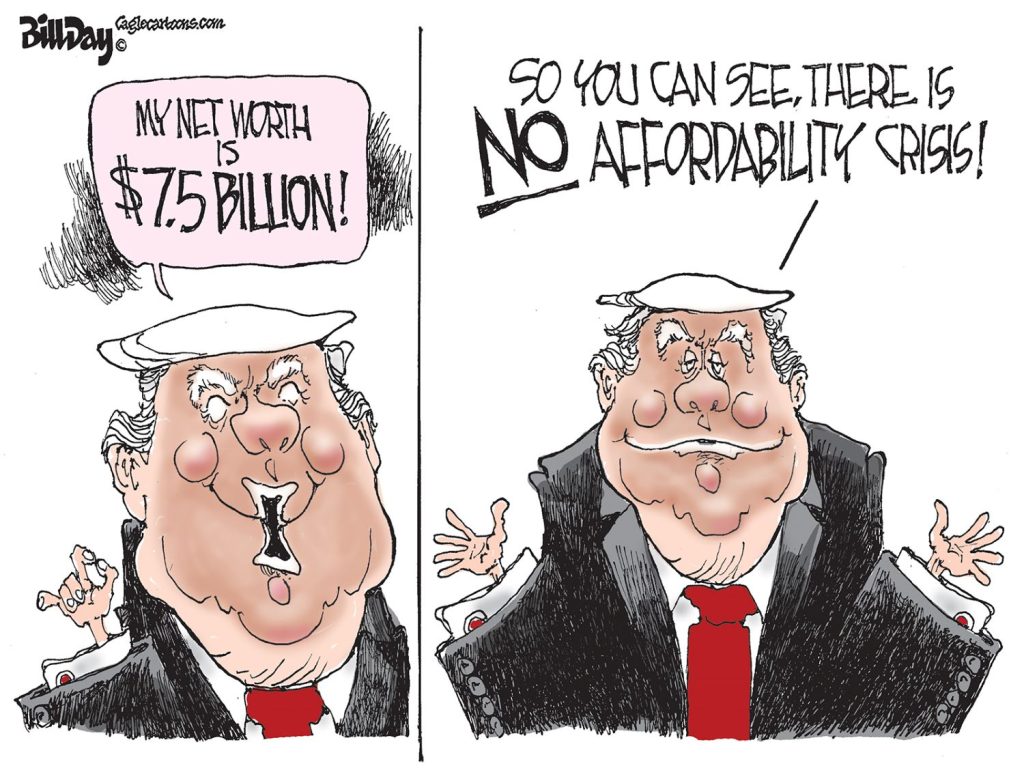This post is written by David Ciscel, economist emeritus at University of Memphis Fogelman School of Business.
By David Ciscel
Let’s play a thought game. We spend a lot of time wishing Memphis were more vibrant, faster growing, and more cosmopolitan.
But what if economic development is bunk? There are several reasons why this may be the case.
First, economic development is very hard to create. No one has a list of the secret ingredients that produce that wonderful outcome. The PILOTs and similar tax abatements of the local EDGE program certainly highlight the truth of this insight. In general, they are complete failures.
Over the past ten years, the Memphis economy has grown slowly, even though there are regular announcements about the creation of new jobs and exciting wages. But when the final tally comes at the end of the year, the results for the aggregate Memphis economy are too boring to mention. My eye surgeon always referred to the source of my retinal problems as ‘idiopathic.’ It’s a great term and explains a lot about why current development efforts fail. We don’t know what works, so we don’t know (ex ante) what will fail.
Second, do we really want the outcomes of successful economic development? From 2011 through 2016, metropolitan Memphis grew 2.41% per year (local GDP) while Nashville grew by 7.22% per year. The labor force in Nashville grew far faster than Memphis and output per worker grew twice as fast in Nashville.
But do you really want to live in Nashville (or Atlanta or Austin)? Sure, it is easier to get a good job, but the traffic is impossible. The distances are incredible. The living is expensive. Cultural activities abound but they are jammed, and the parking is impossible. It is hard to walk to Alchemy for happy hour in those towns but not in Memphis. A lack of development means it is easier (and often cheaper) to live; stores are nearby. We have restaurants, farmers’ markets, breweries and the best pork barbecue in the world. Why mess with a pleasant life?
Third, the problem really isn’t a lack of economic development. Sure, we are slightly poorer than the near and distant neighbors we really envy. But we aren’t poor. By any standards, we are rich.
For 2016 metropolitan GDP per Memphis worker was around $114,000. Now, not all that cash is available for distribution, but it is not peanuts either. The real problem in Memphis (and probably in a lot of other towns too) is not economic development but income distribution. Memphis has always had lots of jobs – but a lot of those jobs just don’t pay a lot. Our social structure, starting with the great historical racial divide, separates the social structure of work into a few good jobs (that pay and have benefits) and the majority of jobs that don’t pay much (and have very few benefits). With economic development, all you get is more income, poorly distributed.
So, there you have it. Economic development is bunk. I am probably wrong but think about it for a while.
**
Join us at the Smart City Memphis Facebook page for daily articles, reports, and commentaries relevant to Memphis.





The problem with most of the economic development money is, that it favors big developers who know how to make a buck or two. But usually these new development do not enhance the places they are build on.
Without a solid master plan most economic help will fail. If you don’t have anything you can measure the outcome against, we will never know how good it could have been.
Economic development is not bunk. It’s absolutely essential for every city, especially one as poverty stricken and economically depressed as Memphis. By any and all standards we are dirt poor. David Ciscel is shockingly wrong.
The facts show that there just isn’t that much going on all across Memphis and the mid south region. What we have is small potatoes. Memphis is far from being vibrant or fast-growing. We are most definitely not a cosmopolitan city.
We so desperately need all the economic development and jobs we can possibly get. Otherwise Memphis will continue to fall farther behind and become a smaller city with worse poverty and more crime.
When we talk about Memphis being a “poor” city, it doesn’t mean a city that is uniformly impoverished, violent and blighted. Anyone who lives in Memphis is not “dirt poor” by definition. The quality of life in my East Memphis neighborhood is as good (if not better) than what I’d get at my income level in Nashville or any other metro area.
We are considered a poor city because a higher proportion of our city fits that description than most of our peers. That is a direct reflection of the condition of the people living in those areas, who are stuck in a economic and cultural morass. Too much of our population lacks the education to do anything beyond low-wage warehouse, clerical, janitorial or food service work. Many also lack the intangible skills – communication, professionalism, intrinsic motivation, initiative, curiosity – to succeed in workplaces and professions that pay high wages because they come from homes and communities where those kinds of behaviors are not modeled consistently or valued.
No amount of “economic development” will bring high-paying jobs to a city unless the existing population provides the foundation for the needed workforce. There’s this myth that we have people making $10/hour who would be making $30/hour if our politicians would just lure more jobs to town. No – we have to develop the $10/hour workers into $30/hour employees to lure those employers to town. Maybe the emphasis needs to be on “human development” rather than economic development.
A large number of both older and younger people here have neither the skills nor any desire to work. Instead they prefer getting public assistance to getting a job. This is a very real epidemic. In Memphis it has a huge negative effect on everything.
What I take from this is that there are trade offs to being a boom town like Nashville making high growth not all it’s cracked up to be – true. That’s why I don’t like to compare Memphis vs Nashville. The problem here in Memphis is things are so out of balance and below average with excessive PILOTs for corporations/real estate investors in the face of stifled small business vitality, high poverty and excessively low academic performance.As far as human development as economic development, I have something is the que, if I can get it past the Smart City Editorial desk….
SCM: Second, do we really want the outcomes of successful economic development?
This is the bizarre fetishizing of poverty.
Our roads are full of pot holes and our sidewalks are cracking : quick call it grit and grind.
No local attractions are great: no crowds!
Few non-stop flights means getting to see the Atlanta Airport more often!
It’s a time honored southern tradition against progress and modernization.
I’ve honestly never heard anyone refer to Memphis as a cosmopolitan city.
I get so annoyed with statements like “authentic”, “soulful” etc.
I also must agree to about the term “grit & grind” which is nothing but a coverup for the many severe problems that have plagued Memphis for decades.
Some of these anonymous whiners seem like they have never been to another city. If they were as critical there as they are here they would see that all cities have issues.
No one is keeping you here.
Anonymous 10:49: Grit and grind was developed by the Grizzlies to describe their style of plan. It then was applied to the city. We never thought it was right for Memphis and did not reflect how the city is becoming a national leader in bike paths, outdoor recreation, etc.
Authentic and soulful are descriptors that resulted from a scientific survey for how people outside Memphis see it. So if you have a complaint, take it up with the rest of the country. As for us, it fits just fine.
David, I believe this reflects the first discussion we had when I first got to Memphis in 1982. Not much has changed. Still my favorite by far, and I have been in and lived in many. George
The PILOT and EDGE programs have not worked in Memphis. They are disastrous giveaways.
Other cities have very successfully used these type incentives. We have little left to give away and I don’t see many out of town developers knocking on our doors. They’ve already milked Memphis for what little we had to offer — which wasn’t much in the first place.
Memphis can never come close to the economic development success of cities like Nashville or Austin.
Anon 3:22, Agreed. Through in depth research, Memphis #1 problem is not Crime or etc but a deficient and unchecked Memphis Corporate Community Leadership complex – (Memphis Tomorrow, EDGE and Chamber) that consistently labels local wealth transfers as “economic development”. It’s a cultural norm with the community culturally and unknowingly invested in a decline by design framework which can be confirmed in trend line data.